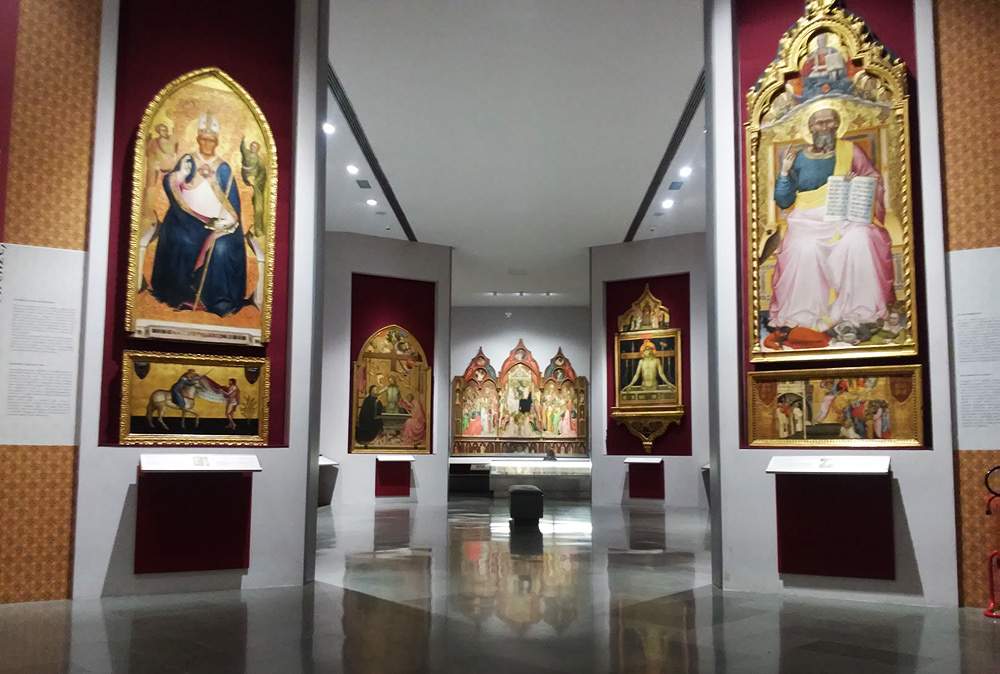All concerned about ministry reform. From Italia Nostra to the mayor of Florence, first impressions
They do not like the centralist turn of the reform of the Ministry of Cultural Heritage(at this link you can read the main changes taken directly from the draft DPCM). And the first negative impressions are beginning to arrive. Among the first to comment on the draft reform are Italia Nostra and theRanuccio Bianchi Bandinelli Association, which, in a joint note, expressed their “strong concern” about the suppression of four autonomous institutes (the Galleria dell’Accademia in Florence, the Castello di Miramare in Trieste, the Museo Nazionale Etrusco di Villa Giulia, and the Parco Archeologico dell’Appia Antica). This deletion, the note reads, “appears substantially lacking in a thoughtful assessment of the reform implemented by the previous minister on the entire organizational structure of the Single Superintendencies, Museum Poles and Autonomous Institutes. The draft also lacks any punctual reference about the future destination of these Institutes and this creates further elements of strong concern and perplexity.” The two associations therefore ask Minister Alberto Bonisoli to “want to look into the matter, reconsidering the hypothesis, providing the public with explanations on what has been learned in order to avoid that such important decisions create further irreversible damage to the protection of a heritage of international relevance, already heavily damaged, in image, by the press reports: assets de facto downgraded, ignoring centuries of history and commitment, treated like merchandise whose dignity has been taken away from them.”
For Florence Mayor Dario Nardella, Bonisoli’s “counter-reform” would even contain “anti-patriotism and totalitarian spirit in Bonisoli’s projects.” It is “Italy in its entirety that comes to be affected by this design that takes us back 40 years,” the first citizen said in an interview with Il Messaggero. “The autonomy of the Gallerie dell’Accademia in Florence would be lost right away, and then I expect other disasters, but also of the Archaeological Park of the Ancient Appian Way and the Etruscan museum of Villa Giulia in Rome, and the park of the castle of Miramare in Trieste. Everything is given back into the hands of the ministerial bureaucracy.” As for the new General Directorate for Contracts and Concessions, another novelty envisaged in the draft DPCM, Nardella says it would be “a body to put the Supreme Soviet to shame or seem to be taken by weight from Gogol’s satires against tsarist hyper-bureaucracy. I open a bookshop in the Uffizi but can’t do it if the super-upper management doesn’t give me permission? A folly to think of a single center managing the tenders for the services of the individual museums, which in recent years with autonomy have made revenue and culture. Then there are curmudgeonly decisions. Like that of entrusting the central directorate that deals with contemporary arts also with the issue of urban redevelopment, which is typically a matter for mayors.”
Cecilie Hollberg, director of the Galleria dell’Accademia in Florence, also intervened on the issue, saying in an interview with Corriere Fiorentino that this “is the wrong moment” to take away autonomy from her museum: “if autonomy disappears,” she pointed out, "goodbye planning, goodbye ability to cope with unforeseen events. It will be a return to the past, to before the museum began to breathe. Goodbye conferences, concerts, the Florentine Voices review that has just started again." For Hollberg’s part, doubts also exist about theabolition of boards of directors: “a Cda,” he said, “is always a fundamental control body for us directors. In my experience of museums, there is no such thing as not having a BoD. It is also a help: if I make a mistake, the Cda tells me.”
Also for Patrizia Asproni, president of Confcultura, the abolition of the Boards of Directors would not be a good thing: “I think we will have to read the text well to understand what and where it changes,” she said in an interview, also in Corriere Fiorentino, “but it seems to me that boards of directors being reduced to zero in favor of a centralization of choices is a blow to autonomy.” And again, “granted that I don’t know how he wants to implement this suppression, and I don’t know by whom they would be replaced, I wonder this: if, for example, to approve and evaluate budgets the competences will return to Rome, will there be at Mibac all the competent figures to fulfill these obligations? To my recollection the members of the boards serve for free, but if they disappear the ministry will have to provide itself with staff, paid, to do their work. These are hot considerations. The text will have to be read.”
Finally, Florentine deputy Gabriele Toccafondi of Alternativa Popolare announced a parliamentary question: “It would be wretched,” he said, “to think of taking away the autonomy of the Accademia, which, as director Cecilie Hollberg reminds us, is a museum that works very well and does more than 1.7 million visitors each year. A cultural and tourist attraction with obvious economic benefits that Florence does not want and cannot give up.”
Pictured: the Accademia Gallery in Florence, one of the autonomous institutes abolished by the MiBAC reform draft.
 |
| All concerned about ministry reform. From Italia Nostra to the mayor of Florence, first impressions |
Warning: the translation into English of the original Italian article was created using automatic tools. We undertake to review all articles, but we do not guarantee the total absence of inaccuracies in the translation due to the program. You can find the original by clicking on the ITA button. If you find any mistake,please contact us.




























